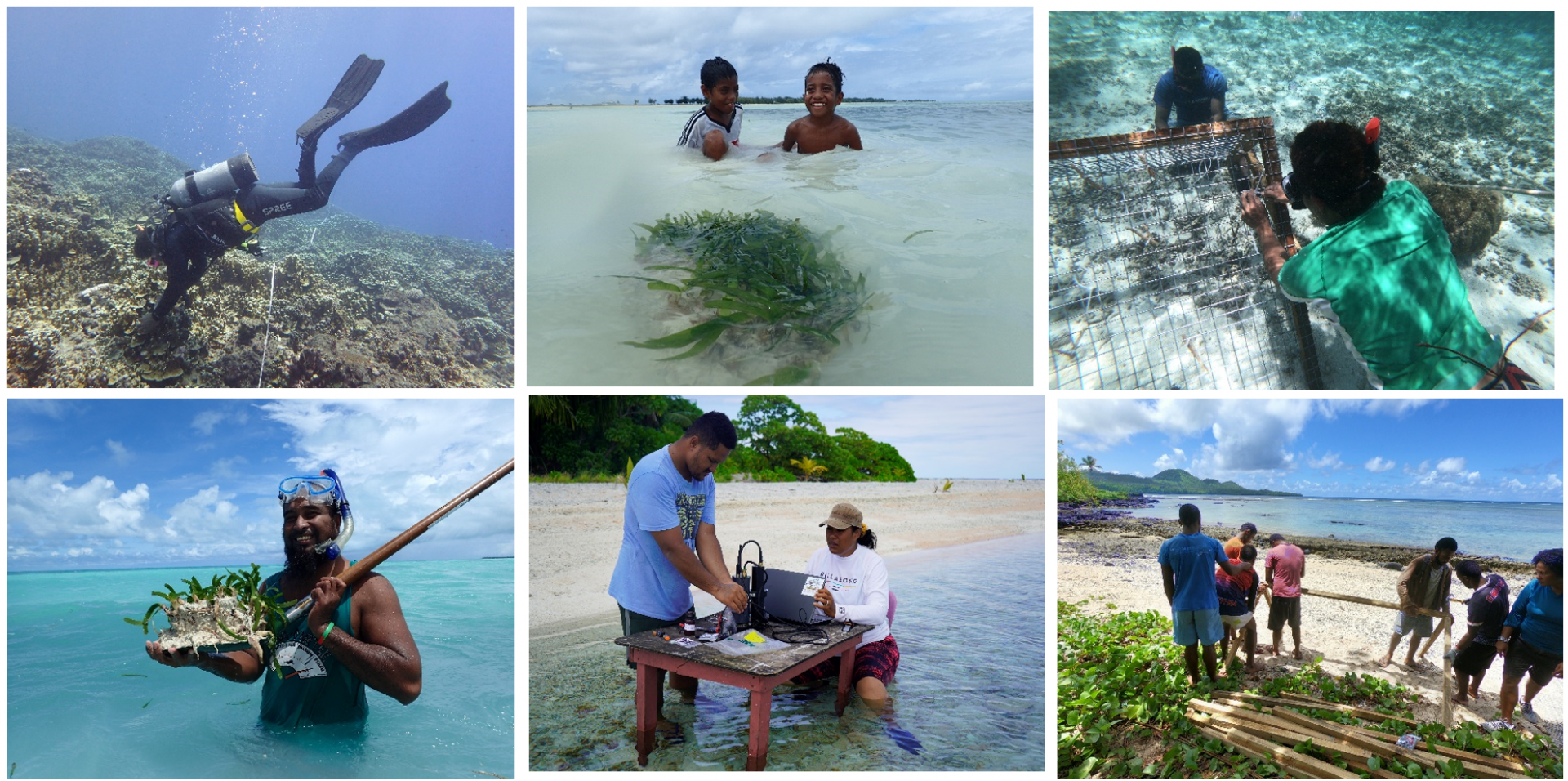The Long-term outcome of this project is to ensure that Resilience to Ocean Acidification impacts is strengthened through improved management of vulnerable fisheries and marine ecosystems. PPOA seek to achieve this outcome through 4 outputs and associated actions:
- Research and Monitoring
- Research and ecosystem monitoring data collected during the implementation of the pilot OA adaptation activities (related to reduction of local stressors and ecosystem rehabilitation) will be used to inform policy development and provide further support to monitoring OA in the pacific islands region. To date PPOA has published a regional Pacific islands ocean acidification vulnerability assessment (https://www.sprep.org/attachments/Publications/CC/ocean-acidification.pdf), and a vulnerability assessment of pelagic fisheries (https://www.wcpfc.int/node/29559).
- PPOA is also providing support in building local capacity for OA monitoring in the region via a partnership with the Ocean Foundation (TOF) and the Global Ocean Acidification Observing Network (GOA-ON), and has provided equipment and training to seven Pacific island nations to monitor and report OA data for SDG Indicator 14.3.1, Average marine acidity (pH) measured at agreed suite of representative sampling stations. The equipment provided for this purpose consists of a spectrophotometer (iSAMI) for in-situ pH measurements, a CTD diver, titration equipment for lab-based TA measurements, and water sample collecting equipment, packaged together as a “GOA-ON in a Box” kit.
- Capacity Building and Awareness Raising:
- PPOA is also providing support to the Pacific Region in raising awareness through production and distribution of OA info media. To date, PPOA has published and distributed an informational poster on OA that has been translated into Fijian and Kiribati, and is being translated into Tokelauan, Cooks Islands, Maori, Tongan, and Samoan.
- Policy Support
- Practical Adaptation Actions
- The outcome of the Pacific Islands Regional Ocean Acidification Workshop held in Samoa 2015, identified and paved the way for the selection and establishment of the three currently existing pilot sites under PPOA; Kiribati, Tokelau & Fiji.
- As a bottom-up, stakeholder driven project, PPOA has been working in close consultation with community and government stakeholders at these pilot sites (Fiji, Tokelau, and Kiribati) to build capacity and to determine stakeholder priorities for appropriate adaptation actions. Adaptation actions being considered include:
-
-
- Enhancing primary producers (mangroves, seagrass) to locally buffer pH in the vicinity of a coral reef ecosystem
- Coral restoration to enhance reef resilience
- Reducing reef stressors via:
- Locally managed marine areas (LMMAs)
- Reducing reef fishing pressure by supporting alternative livelihood opportunities for reef-dependent communities, e.g., aquaculture
-
-
Practical Adaptation Actions (Coral, Mangrove and Seagrass Restoration)
